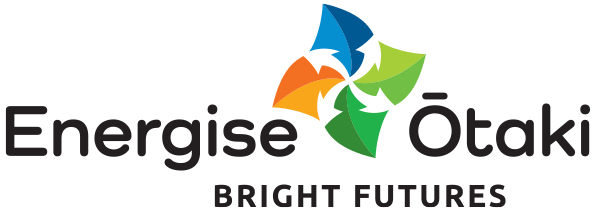Project: Site Self-sufficiency
Hover over the text to pause and read
Practicing water conservation with a composting toilet and by harvesting
rainwater; helping make the Zero Waste Ōtaki site self-sufficient.
Team: Zero Waste Ōtaki
Zero Waste Ōtaki’s initial focus is on recycling and upcycling dumped/ donated wood. You’d drive 100km to find anyone else doing this (not a great use of your resources). In time, they plan to divert other waste streams from landfill. Meanwhile, they need water.
Zero Waste Ōtaki (ZWŌ) founder Jamie Bull made two successful applications to the Fund. The first enables ZWŌ to buy a composting toilet for volunteers. The other will pay for a donated water tank to be set up, to store water from the container roofs. With no other water available on site this is a great way to make the most of available resources. Which is what Zero Waste Ōtaki is all about: in their first year they’ve diverted over 15 tonnes of wood from landfill, while increasing the community’s awareness of recycling and upcycling.
What the $1000 People’s Choice Bonus would be spent on:
Buying and installing a second water tank for more rainwater harvesting.
Zero Waste Ōtaki welcomes donations, collaborators, and volunteers – especially project administrators and hands-on makers. Also, they welcome wood. Lots and lots of quality wood. Email: asdf
Project: Whakahiko i te Taiao – Energise the Environment
Hover over the text to pause and read
Reviving the Maringi-a-Wai stream as a teaching/ living resource
for tamariki and others.
Team: Te Kura ā Iwi o Whakatupuranga Rua Mano
The Maringi-a-Wai stream used to be Ōtaki’s only waterway bringing people from the beach into town. Tuna (eels) loved it. Drained in the 1930s, it’s now fed by twelve springs on kura grounds.
It takes seven years to build up a plant ‘soak area’ to purify polluted water. Kaitiaki whenua/ teacher Merle Metekingi has been going for six, leading work on the now regionally renowned project.
Once Maringi-a-Wai has been cleaned up, Merle and the kura kids will branch out to restore other streams. They’ve got stories to share, disasters as well as successes; cow tramplings, upstream irrigation. Other schools come to theirs to see how it’s done. Meanwhile, every day the stream’s a classroom, for Te Kura ā Iwi o Whakatupuranga Rua Mano and beyond.
In the video above, is the caretaker and woodcarving teacher Robert Cooper.
What the $1000 People’s Choice Bonus would be spent on:
Building a sun shelter/ outdoor classroom next to the stream.
Te Kura ā Iwi o Whakatupuranga Rua Mano welcomes manuhiri (visitors) to check out the restoration project, and volunteers to join in. Email: merle@wrm.school.nz
Project: Go Box
Hover over the text to pause and read
Building a prototype for a portable electricity storage unit
made out of laptop batteries and other recycled materials.
Team: Team Go Box
The Team plans to design a portable power source for when the grid goes down. Go Box will be the go-to for emergency lighting, cooking, or keeping in touch via the radio/ mobile/ internet... for a few hours, or even days. But who needs an emergency? The Go Box could also become every-day hardware for e.g. using power tools in the great outdoors.
All going well, the Team’s prototype could evolve into a product that would support a local cottage industry...while using recycled materials. Less waste, more zappage.
What the $1000 People’s Choice Bonus would be spent on:
Extending and testing the ‘proof of concept’ prototype for additional power sources and loads; refining the design to make it viable for local small scale production.
Team Go Box welcomes contact from interested collaborators, funders, the recycling community, etc. Email: davidktimperley@davetimperley.com
Project: Caretaker’s EV
Hover over the text to pause and read
Supporting students to design a solar-charging
grass-mower for College caretaker Colin.
Team: Ōtaki College
Ōtaki College teacher Chris Georgetti, known for helping senior engineering students design solar-powered go-carts, will now help them invent an emissions-friendly vehicle for the College caretaker, Colin Rice.
Potentially repurposing parts from a golf cart or mobility scooter, the new cart will use clean energy to transport tools and their user around the grounds. Quieter and lighter than the current mini-tractor, it will cut down on noise and air pollution... while cutting the grass. The final design will be offered to other colleges.
What the $1000 People’s Choice Bonus would be spent on:
Parts for next year’s EVolocity entry; the annual clean energy vehicle design competition (typically aced by Ōtaki College students).
Ōtaki College welcomes financial donations towards the Evolocity design and build, donations of old mobility scooters or electric golf carts, and the help of a TIG welder to give an introductory lesson to students. Contact: office@otakicollege.school.nz
Project: Ngahere Kai (Food Forest)
Hover over the text to pause and read
Planting a food forest at the kura, starting with compost and mulch.
Team: Te Kura Kaupapa Māori o Te Rito
The kura's Ohu Taiao (parents’ environmental group) are starting a food forest that will “grow champions”. They’re not talking about prize potatoes. Involving students in the work will help grow new generations of kaitiaki/ environment protectors. And eventually, fill their lunch plates too. The first step is making carbon rich, nutrient rich soil. Next, planting. Eventually, the kura kids will be cultivating and harvesting berries, fruit, herbs and root crops. It’s about taking the classroom – and the dining table – into the great outdoors. Cultivating resilience and self sufficiency, via apples and kumara.
What the $1000 People’s Choice Bonus would be spent on:
More mulch and seedlings.
Te Kura Kaupapa Māori o Te Rito welcomes volunteers and donations. Contact: tari@terito.school.nz
